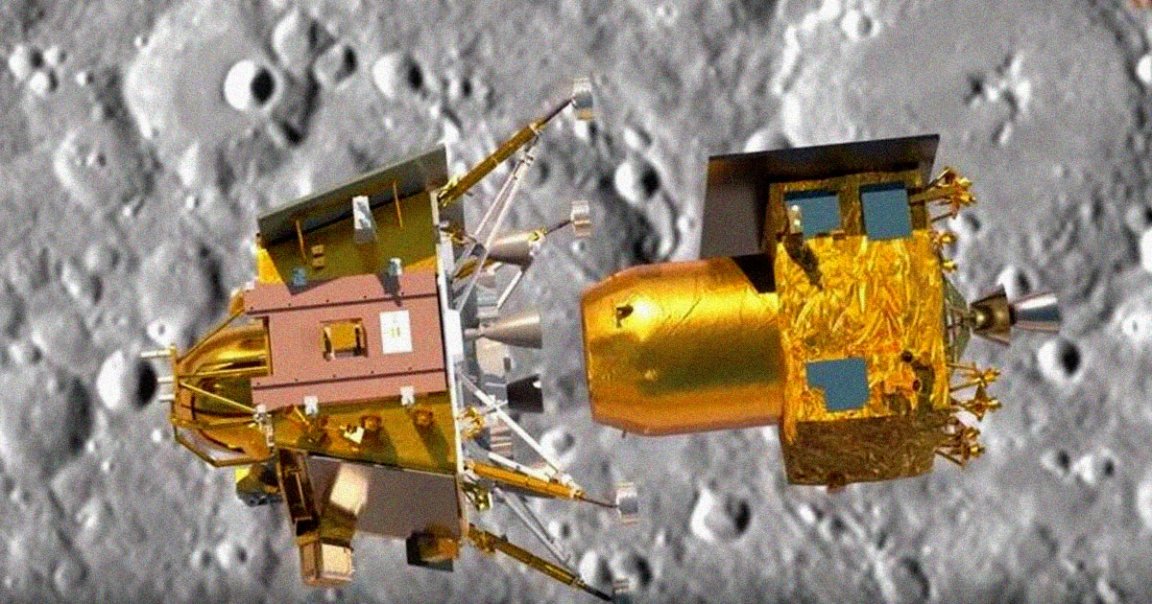
Polar Vortex
Just days after Russia crashed its Luna-25 lunar lander on its way to the Moon’s surface, India’s space agency is gearing up for its own attempt.
The two countries were in a race to become the first country to softly land a craft near the lunar south pole, a region scientists believe could be rich with water ice, a key resource for potential settlement efforts.
But with Russia out of the race for now, all eyes are on India’s Chandrayaan-3 spacecraft, a followup to a precursor that crash-landed on its way to the lunar surface back in 2019.
We’ll be watching closely because the stakes are high. If successful, the mission could make India only the fourth country to successfully land on the Moon, following the US, the Soviet Union, and China — and, in a sense both symbolic and technical, show that it’s pulling ahead of Russia’s increasingly disastrous space program.
Trying Again
The lander-rover pair will attempt their treacherous journey to the south pole on Wednesday, if all goes according to plan. Officials from India’s space agency ISRO told reporters on Monday that all the spacecraft’s systems are working “perfectly,” Reuters reports.
The mission’s objectives are first to prove the country’s capability of safely landing on the Moon, and then study the composition of the lunar south pole if successful.
Chandrayaan-3 features several technological upgrades over its precursor that could give it a better shot of sticking the landing later this week. For one, ISRO is giving itself a larger potential landing zone in the case of adverse conditions. It also has sturdier legs, an important because the south pole’s terrain is comparatively rough.
Moon Stakes
If all goes according to plan — needless to say, that’s still an astronomical “if” — the lander will release a 57-pound, six-wheeled rover that will explore the surrounding areas for evidence of water ice using an X-ray spectrometer and a laser spectroscope.
A success could catapult India ahead in the international race to establish a permanent presence on the Moon — especially now that Russia’s attempt has failed.
“If Chandrayaan-3 succeeds, it will boost India’s space agency’s reputation worldwide,” former ISRO scientist Manish Purohit told Reuters. “It will show that India is becoming a key player in space exploration.”
More on India: India to Launch Third Moon Mission Next Week